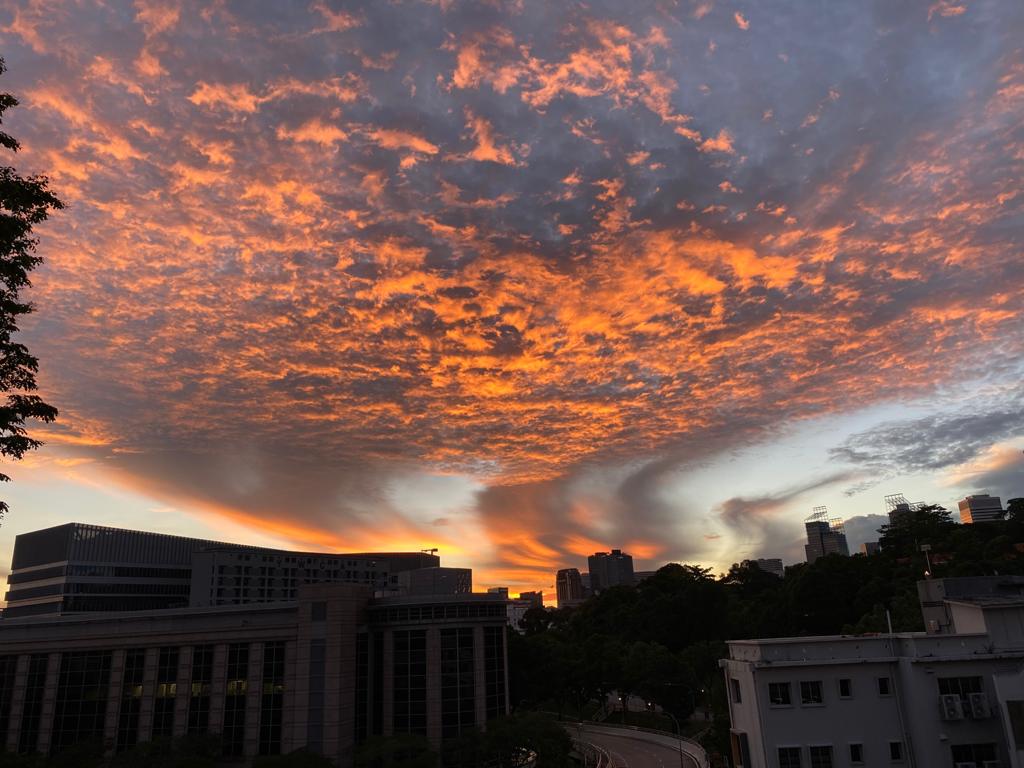Interview by Teresa Teo Guttensohn
As a human animal, I am very much a part of nature, so I advocate the treatment of nature as I would for myself – gently please, and with love.
Dr DENISE DILLON
We hear from Dr Denise Dillon on her takeaways from the ongoing Covid-19 global pandemic, mindfulness and nature.
Q: What is your take on life in the time of COVID-19?
DD: I came to appreciate how very fortunate I am. One of my life constants is a desire to be my human self, in the sense of being a part of the ecosystem as one of many animal species. In a fundamental way, I am part of the fauna of my neighbourhood, and I’m very lucky to have Fort Canning Park as part of that neighbourhood.
Q: What did you experience during the lock-down?
DD: There is a relatively rich diversity of bird life in my neighbourhood. During the time that we were staying indoors, I was able to look outwards onto the tree outside my balcony and to observe the flurry of activities in just one tree, and from bird species that I hadn’t noticed before.
Q: What is a key observation you made during the Covid-19 period so far?
DD: The number of visitors to Fort Canning Park increased during our circuit breaker period – whole families spending some outdoor time together. Our urban green spaces were filling a need for people who were seeking respite from life indoors.
People indoors were looking out to nearby nature from window or balcony views, and sharing new observations – things they hadn’t noticed before – a bird visiting the tree, weeds growing in the paths, how beautiful the grass looks when allowed to grow longer.

Q: How did you connect with nature growing up in North Queensland, in Australia?
DD: One of the things I’m most appreciative of is the good fortune of having grown up in a semi-rural area where as children we would regularly climb trees and dig in the dirt.
We spent lots of time sitting up in the trees as well as just climbing them, and we got to appreciate the different textures and growth patterns of tree branches of many trees in the neighbourhood.
Q: Which nature experience do remember the most?
A strongly reminiscent experience for me is associated with freshly dug soil – we had rich, red volcanic soil in the area I lived. After more than a decade away I still miss the tactile experience of breaking up clumps of soil with my hands, the olfactory experience of bringing a clump of soil right up under my nose, and the visual experience of the dark red colour of the soil and of the earth worms who made their homes there.
Q: How can we engage with nature through forest bathing?
Our capacity to observe doesn’t always equate to an ability to notice – noticing comes with sustained and mindful observation. We can move quickly through nature on brisk walks, and observe lots of things along the way, but noticing comes more from standing still and letting nature move at its own pace towards us.
This is the essence of forest bathing – mindful presence in natural settings opens the way for deeper and more meaningful appreciation of our own place in the web of interbeing around us.
Whether people choose to check out a formal forest bathing session or simply engage in their own nature immersion practices, I’m definitely a champion for engagement with nature. The more we allow nature to approach us the more we’ll notice, and the more we notice the closer we can connect at a fundamental, human animal level.
Q: What do you think is needed to save nature and thereby save ourselves?
DD: We need experiences of noticing nature and experiences that make us curious to understand more about the nature around us. The more we immerse ourselves in the pockets of nature around us, the more we’ll come to notice and the more meaningful our engagement will become. The web of interbeing is already around us – we only need to find and understand our own fundamental place there.
Q: What lesson can you share about human dependence on nature?
DD: I’m neither a great learner nor a great teacher, so lessons don’t come easily to me. I’m more about direct engagement and observation, about patiently sitting so that noticing happens sometimes without me even noticing. Perhaps that in itself is a lesson about dependence on nature.
I cherish those unexpected moments when something catches my eye perhaps as a burst of movement or a flash of colour, or even more subtly when something about a pattern looks slightly out of place and I realise it’s because an insect is camouflaged in the array before me.
Dr Denise Dillon lives and works in Singapore as a full-time academic. She is an environmental psychologist and certified Nature and Forest Therapy Guide (ANFT certification # 1818009).
Her research interests focus on biophilia and nature connectedness, as well as more broadly surrounding aspects of human-nature interactions. Enjoying the best of two worlds (psychology and literature studies), she has also published research in the field of eco-criticism.
Dr Denise Dillon was a Speaker at the Biophilia and Nature Education Symposium 2019 by Cicada Tree Eco-Place.





